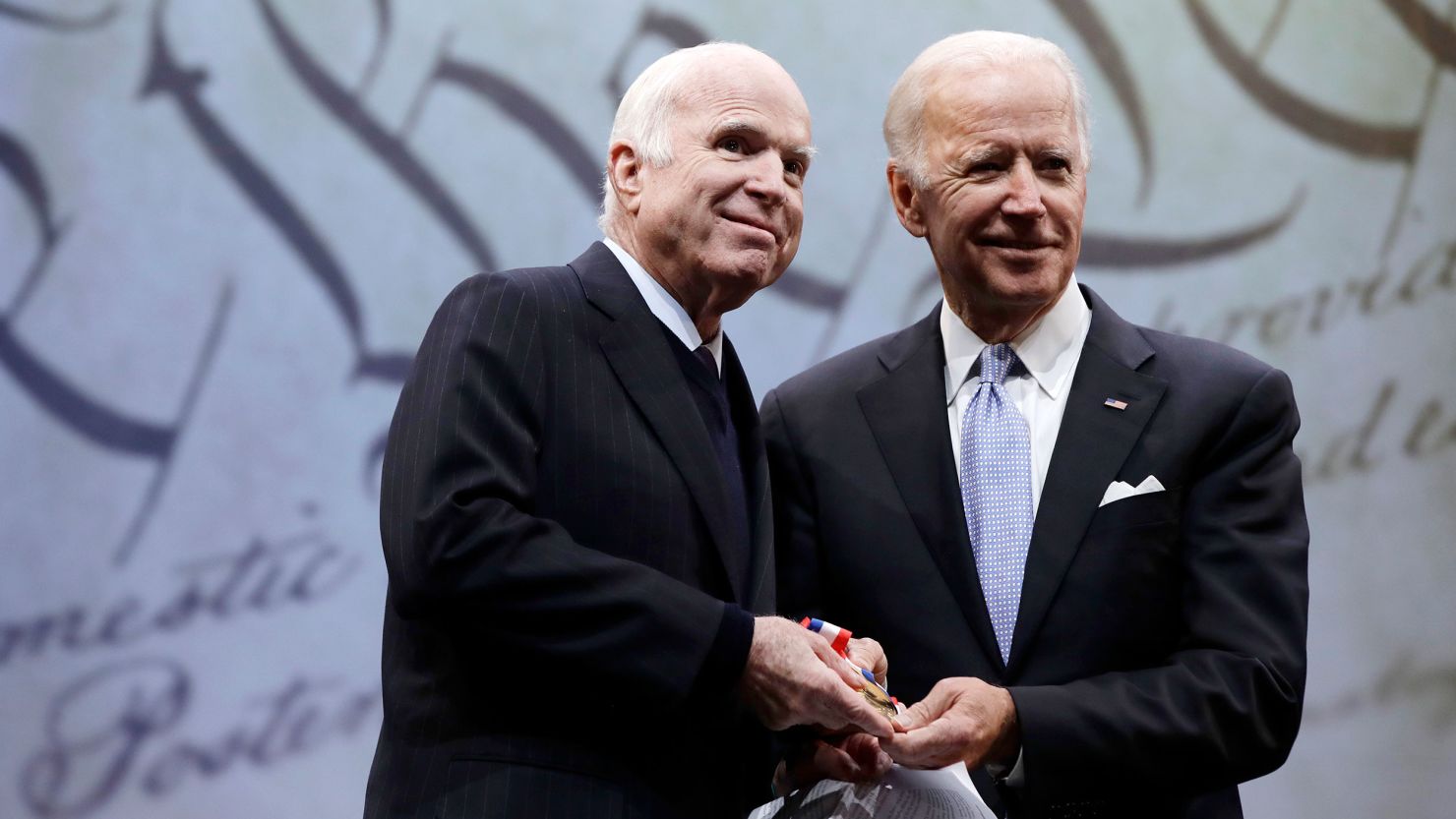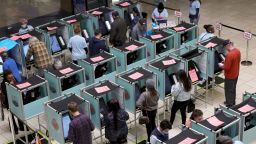Editor’s Note: Kara Alaimo, an associate professor in the Lawrence Herbert School of Communication at Hofstra University, writes about issues affecting women and social media. She was spokeswoman for international affairs in the Treasury Department during the Obama administration. The opinions expressed in this commentary are her own. View more opinion on CNN.
The late Republican Sen. John McCain of Arizona was a close friend of President Joe Biden when they served together in the Senate, according to his wife Cindy McCain. In a video she recorded during Biden’s presidential campaign, she recalled how during family picnics in Biden’s backyard, “they would just sit and joke. It was like a comedy show, sometimes, to watch the two of them.”

At McCain’s funeral, the President said, “My name’s Joe Biden. I’m a Democrat. And I loved John McCain.”
The relationship seems to have affected policymaking. Biden had what was reported to be an “emotional discussion” with McCain just before McCain became one of three Republicans to cast a critical vote against repealing the Affordable Care Act in 2017.
Similarly, former Republican Sen. Orrin Hatch of Utah said he was “very dear friends” with the late Democratic Sen. Ted Kennedy of Massachusetts. The two men, ideologically opposed in so many ways, nevertheless worked together to pass bipartisan legislation like the Americans with Disabilities Act and Children’s Health Insurance Program. At one point, in the middle of a disagreement, Kennedy deployed a staffer to Hatch’s office to serenade him in an effort to make peace.
These days, it feels rarer to hear such stories.
In his book, “The Righteous Mind: Why Good People Are Divided by Politics and Religion,” Jonathan Haidt describes a phenomenon explained by former Republican Rep. Jim Leach of Iowa: “Before 1995, congressmen from both parties attended many of the same social events on weekends; their spouses became friends; their children played on the same sports teams. But nowadays most congressmen fly to Washington on Monday night, huddle with their teammates and do battle for three days, and then fly home on Thursday night. Cross-party friendships are disappearing … scorched Earth politics are increasing.”
The new senators and representatives elected last week will join a Congress that is more polarized than at any other time over the past 50 years, according to a 2022 analysis by the Pew Research Center.
Members of Congress have also become less civil. Between 2009 and 2019, incivility on Twitter by senators and representatives increased by 23%, according to a 2022 study published in the journal Social Psychological and Personality Science.
It will take a whole lot to overcome this. Here’s a small but positive way to start: Members of Congress should move their families to live in Washington, DC, with them.
Brad Fitch, president and CEO of the nonpartisan Congressional Management Foundation, told me that there is no official data on where members of Congress live, but “the percentage of members of Congress in the 117th Congress who have their families living in the Washington area is extremely small.” He estimates that less than 20% of Congress people may have moved their families to the nation’s capital. By contrast, he says, 20 to 30 years ago, the majority of members of Congress moved their families to Washington, DC, when they took office.
Things changed in 1995 when then-House Speaker Newt Gingrich encouraged his party to keep their families in their districts. Now, many members return home to see their families and constituents – and fundraise – on the weekends. With this kind of a work schedule, members of opposite parties aren’t just unlikely to be friends – they may not even know one another at all.
Unsurprisingly, between 1989 (when more members of Congress lived with their families in Washington, DC) and 2017, the number of bipartisan bills introduced in the first legislative session each year fell 30%, according to Quorum, a company that makes public affairs software.
But if their kids went to school together and became friends (something that could naturally happen if they all lived in the capital), or they got together with their spouses for dinner, they could have the opportunity to come to see each other as decent human beings.
That would make it a whole lot harder to turn around and throw vitriol at one another on Twitter. It’s easy to attack someone you don’t know. It’s a lot less comfortable to call your neighbor who you run into around town or sit behind at your kid’s school play a vicious name.
If they lived in the same place, members of Congress would also inevitably get to know one another better. That just might help cultivate the kind of Biden-McCain or Hatch-Kennedy relationships that could allow them to get more bipartisan deals done.
One challenge would be the cost of maintaining homes for their families in both places. The cost of living in Washington, DC, is 39% higher than the national average, according to the job site Payscale. So it could be a lot cheaper for members of Congress to bunk up with a few colleagues in a shared apartment while they are in Washington, DC, and leave their families back home.
Members also have an incentive to maintain some sort of additional home in their districts if they want to run for reelection, since the US Constitution says a member of Congress is required to “be an Inhabitant” of the state he or she is elected to represent.
Members of Congress haven’t received a raise since 2009. Their salary stands at $174,000. While that’s a lot more than that of the average American, it could still make maintaining a second household in such a costly city a challenge. But if members of Congress passed legislation giving those who move their families to Washington, DC, additional housing stipends, it would be well worth the investment.
The partisanship and incivility plaguing Congress will likely make it hard for members of the 118th Congress to overcome their differences. But making their primary houses in the nation’s capital could foster the kind of old-fashioned bipartisan friendships that over time could make for a more civil and productive people’s house (and Senate).






